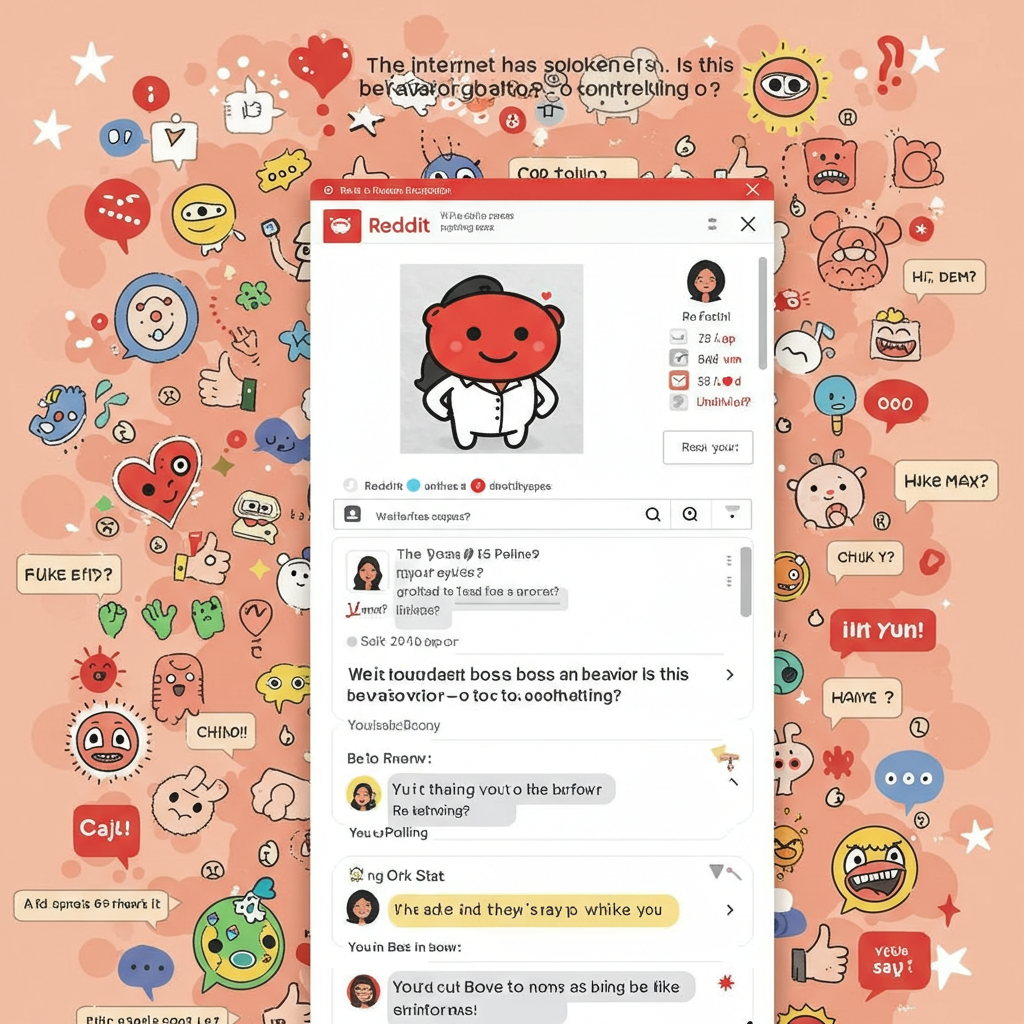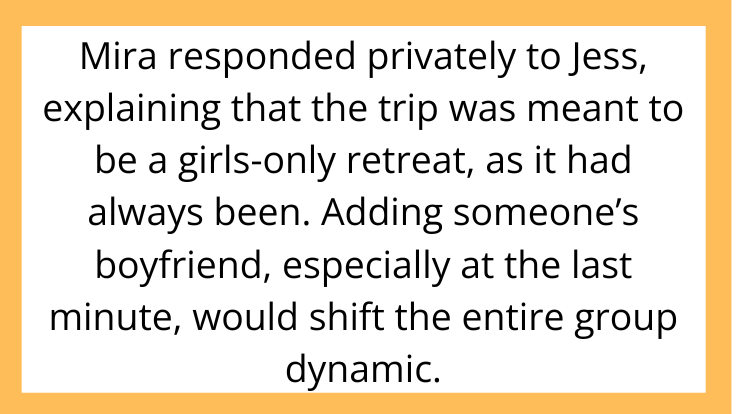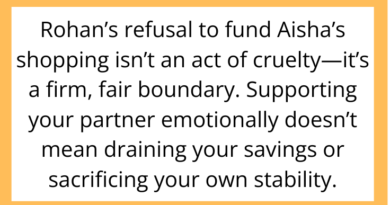AITAH for Not Letting My Best Friend’s Boyfriend Join Our Girls’ Trip?
Vacations are meant to be relaxing, a chance to reconnect with friends and escape the daily grind. But what happens when a long-anticipated girls’ trip turns into a battleground over guest lists and personal boundaries? In this AITAH scenario, a woman finds herself in hot water after telling her best friend her boyfriend isn’t invited.
Is she protecting the group’s vibe—or being unnecessarily controlling?
Let’s dive into the drama.
The Setup: A Girls’ Trip, Years in the Making

The original poster (we’ll call her Mira), 28, has a close-knit group of four girlfriends. Every year, they plan a trip together to unwind, catch up, and enjoy time away from partners, work, and responsibilities. It’s been a tradition since college—something they all look forward to.
This year, they booked an Airbnb cabin in the mountains, split costs equally, and planned a four-day weekend getaway. Everyone was excited. That is, until one week before departure, Mira’s best friend Jess texted the group saying her boyfriend, Tyler, would be tagging along.
“He already got the time off and needs a break too,” Jess explained. “He won’t be in our way!”
The rest of the group, including Mira, was stunned.
Drawing a Boundary: Mira Says No

Mira responded privately to Jess, explaining that the trip was meant to be a girls-only retreat, as it had always been. Adding someone’s boyfriend, especially at the last minute, would shift the entire group dynamic.
Jess didn’t take it well.
She accused Mira of being rigid, jealous, and inconsiderate. “Why can’t you just be happy for me?” she asked. “Tyler’s part of my life now.”
Mira stood firm. She told Jess that if Tyler came, she would feel uncomfortable, and the others likely would too—but she would respect Jess’s decision to either come alone or skip the trip entirely.
Jess exploded. She called Mira selfish and said she was trying to “control” her relationship. She later removed herself from the group chat, leaving the rest of the girls confused and upset.
Mira turned to Reddit: AITAH for not wanting my friend’s boyfriend on our girls’ trip?
Reddit Reacts: What the AITAH Community Thinks

The r/AITAH subreddit came through with thousands of responses, most siding with Mira.
Why Mira’s Not the Villain
-
Clear Tradition: This wasn’t a last-minute friends’ hangout—it was a long-standing annual trip with clear expectations.
-
Group Agreement: Everyone agreed to the trip under the assumption it was girls-only. Changing that affects the group experience.
-
Emotional Safety: Mira and the others didn’t feel comfortable with someone outside their friend circle sharing private conversations and close quarters.
One commenter summed it up perfectly:
“You’re not stopping her from going on a trip with her boyfriend. You’re saying this trip isn’t the time or place. That’s not selfish—it’s respectful to the group.”
But Some Sympathized with Jess
Not everyone thought Mira was completely in the clear. A few Redditors pointed out:
-
Changing Priorities: As friends grow older, relationships evolve. Jess may have felt her life was moving in a new direction—and wanted her partner to be part of it.
-
Exclusion Hurts: Jess could have felt isolated if her relationship wasn’t respected by her closest friends.
Still, even those who saw Jess’s side admitted she went about it the wrong way—by assuming her boyfriend could just join without a conversation.
What This Is Really About: Respecting Group Norms

This situation isn’t just about a boyfriend crashing a trip—it’s about respecting shared boundaries, traditions, and the emotional investment people put into friendships.
Why Group Dynamics Matter
Friend groups, like romantic relationships, rely on balance and communication. When one person tries to shift that dynamic without group consensus, tension is inevitable. Mira and her friends created a space that felt safe, familiar, and comforting. Jess’s request disrupted that—not because her boyfriend is a bad person, but because the space wasn’t meant to include him.
It’s Okay to Say “No”
This scenario also highlights something many people—especially women—struggle with: saying no without guilt.
Mira didn’t say, “I don’t like your boyfriend.”
She said, “This trip isn’t the place for him.”
That’s a boundary, not a betrayal.
What Could’ve Been Done Differently?

If Jess truly wanted to include her boyfriend, she could have:
-
Asked First: Instead of announcing his attendance, she could’ve opened a respectful discussion.
-
Planned a Separate Trip: Nothing’s stopping her from organizing a getaway with Tyler at another time.
-
Recognized the Trip’s Purpose: A girls’ trip is about bonding—introducing a partner changes the focus.
Likewise, Mira could’ve softened her message with empathy, even while holding the line.
The Verdict: Not the Villain

In the end, Mira isn’t the villain for wanting to protect the integrity of a tradition that matters deeply to her and her friends. She didn’t ban Jess or shame her relationship—she enforced a boundary the group had agreed on from the start.
Saying “no” to something that makes you uncomfortable doesn’t make you the bad guy. It makes you honest—and sometimes, that’s what strong friendships need most.



